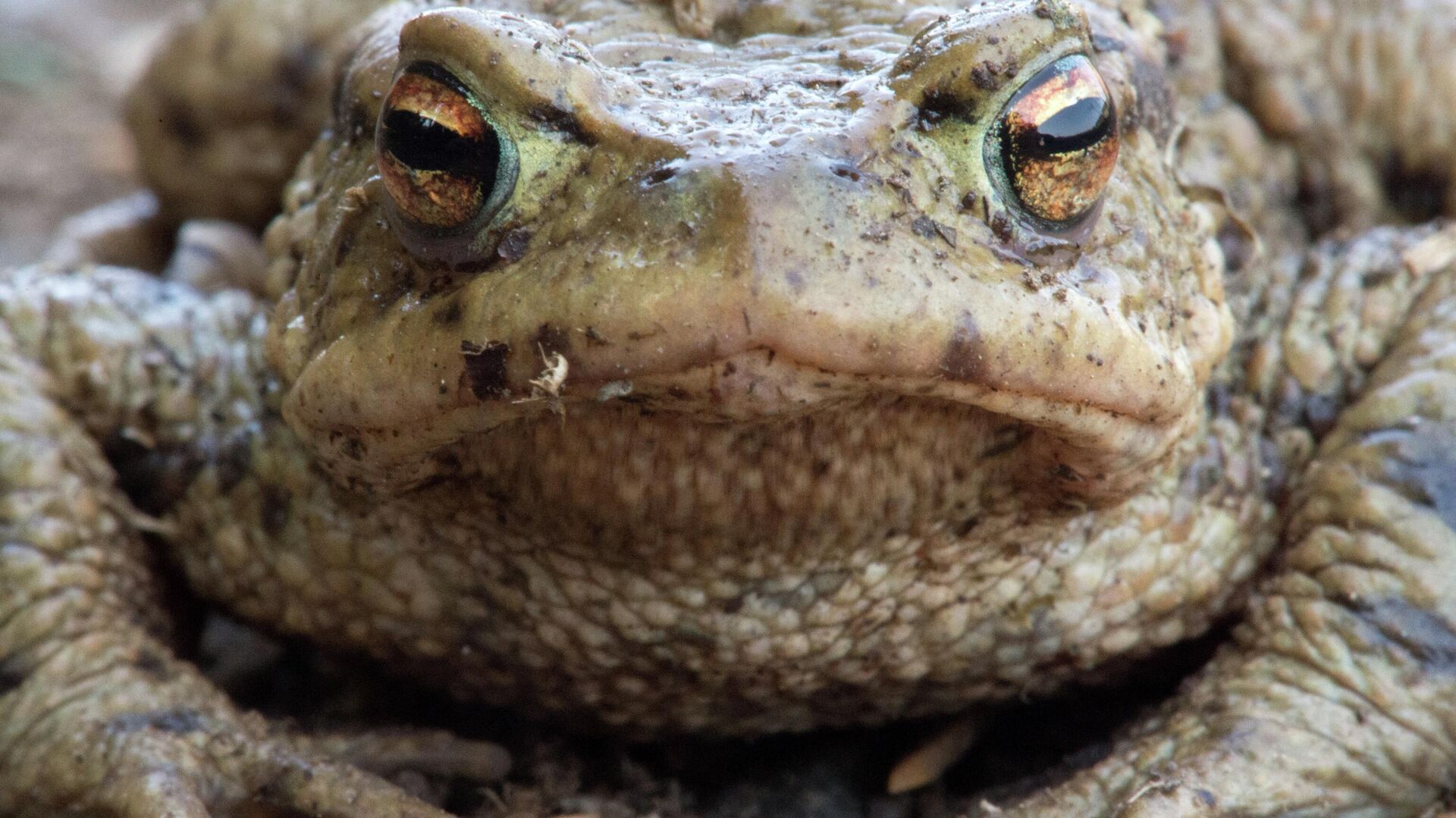https://sputnikglobe.com/20221109/dont-lick-sonoran-desert-toad-us-national-park-service-warns-1103922114.html
Don't Lick Sonoran Desert Toad, US National Park Service Warns
Don't Lick Sonoran Desert Toad, US National Park Service Warns
Sputnik International
Bufo alvarius, or the Sonoran Desert toad, reaches about 18 centimeters in length, lives in the south-western United States and produces a psychedelic chemical... 09.11.2022, Sputnik International
2022-11-09T07:27+0000
2022-11-09T07:27+0000
2025-04-07T11:05+0000
toad
drugs
us
viral news
https://cdn1.img.sputnikglobe.com/img/07e6/0b/09/1103921967_0:159:3076:1889_1920x0_80_0_0_5201fd82e91992f71c06cb3002517a9e.jpg
The US National Park Service has issued a bizarre official appeal to tourists. In its message on social media, the agency asks guests... not to lick any inhabitants of the park, especially toads.Sonoran Desert toads have enjoyed a lot of attention from those who enjoy a psychedelic trip. These animals produce a chemical called 5-Methoxy-N, N-dimethyltryptamine (5-MeO-DMT), which the amphibian uses to protect itself from predators. This substance causes euphoria, a feeling of warmth, as well as strong visual and auditory hallucinations.As a result, there are so many people who want to try this psychedelic experience that Sonoran Desert toads are threatened with extinction. Poachers collect them to make drugs and sell them, and some people even want to keep them at home for drug use, according to media reports.According to the state's Department of Game & Fish, in New Mexico, the toads are considered threatened because of "collectors that want to use the animal for drug use".However, the toad's poison can also be fatal: there have even been cases when large dogs that have attacked the toads have died.The only natural enemy of the toad are raccoons, which manage to turn the amphibians onto their back thus avoiding contact with the poisonous mucus that covers the upper part of the toad's body.
Sputnik International
feedback@sputniknews.com
+74956456601
MIA „Rossiya Segodnya“
2022
Sputnik International
feedback@sputniknews.com
+74956456601
MIA „Rossiya Segodnya“
News
en_EN
Sputnik International
feedback@sputniknews.com
+74956456601
MIA „Rossiya Segodnya“
Sputnik International
feedback@sputniknews.com
+74956456601
MIA „Rossiya Segodnya“
sonoran desert toad, us national park service, bufo alvarius, don't lick toads, tourists licking toads, toads that produce drugs,
sonoran desert toad, us national park service, bufo alvarius, don't lick toads, tourists licking toads, toads that produce drugs,
Don't Lick Sonoran Desert Toad, US National Park Service Warns
07:27 GMT 09.11.2022 (Updated: 11:05 GMT 07.04.2025) Bufo alvarius, or the Sonoran Desert toad, reaches about 18 centimeters in length, lives in the south-western United States and produces a psychedelic chemical which the amphibian uses to protect itself from predators. However, it transpires that there is a particular breed of person whose interest in the toad is not exactly innocent.
The US National Park Service has issued a bizarre official appeal to tourists. In its message on social media, the agency asks guests... not to lick any inhabitants of the park, especially toads.
"It can make you sick if you handle the frog or get the poison in your mouth," the park service said in a Facebook post. "As we say with most things you come across in a national park - whether it be a banana slug, unfamiliar mushroom, or a large toad with glowing eyes in the dead of night - please refrain from licking."
Sonoran Desert toads have enjoyed a lot of attention from those who enjoy a psychedelic trip. These animals produce a chemical called 5-Methoxy-N, N-dimethyltryptamine (5-MeO-DMT), which the amphibian uses to protect itself from predators. This substance causes euphoria, a feeling of warmth, as well as strong visual and auditory hallucinations.
As a result, there are so many people who want to try this psychedelic experience that Sonoran Desert toads are threatened with extinction. Poachers collect them to make drugs and sell them, and some people even want to keep them at home for drug use, according to media reports.
According to the state's Department of Game & Fish, in New Mexico, the toads are considered threatened because of "collectors that want to use the animal for
drug use".
However, the toad's poison can also be fatal: there have even been cases when large dogs that have attacked the toads have died.
The only natural enemy of the toad are raccoons, which manage to turn the amphibians onto their back thus avoiding contact with the poisonous mucus that covers the upper part of the toad's body.

